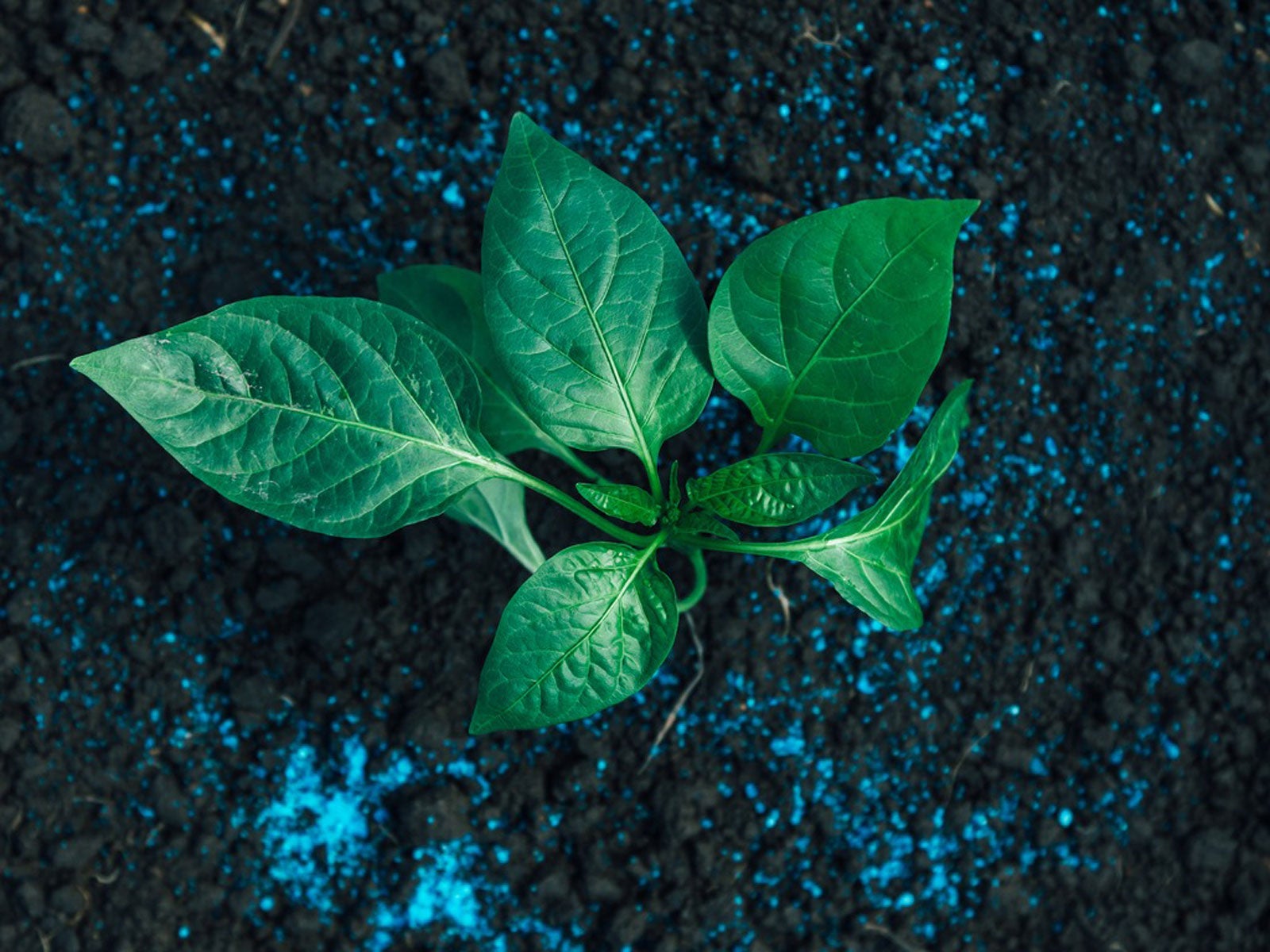Best Fertilizers for Peppers: Increase Development and Flavor Naturally
Best Fertilizers for Peppers: Increase Development and Flavor Naturally
Blog Article
The Ultimate Overview to Fertilizing Peppers: Enhancing Development and Taste Normally
As pepper enthusiasts seek to grow durable plants producing flavorful fruits, the role of fertilization ends up being vital in achieving these objectives. By checking out the benefits of natural plant foods, unlocking the secrets behind pepper plant nutrient needs, and diving right into the realm of natural fertilizer choices, a world of opportunities arises for improving the vigor and flavor account of these cherished plants.
Benefits of All-natural Fertilizers
All-natural plant foods provide a range of advantages that contribute to the total wellness and productivity of pepper plants. By enhancing the dirt with organic matter, such as garden compost or manure, natural plant foods improve its water retention ability and nutrient-holding abilities, developing a more welcoming environment for pepper plants to flourish in.
Furthermore, natural plant foods support a varied and energetic soil microbiome, promoting beneficial microbial activity that aids in nutrient recycling and uptake by the plants. This microbial activity can help suppress harmful pathogens and diseases, decreasing the requirement for chemical interventions. Furthermore, all-natural fertilizers promote long-lasting soil health by preserving a balanced community underground, which consequently supports the overall health and resilience of pepper plants above ground.
Understanding Pepper Plant Nutrient Needs
Having developed the advantages of organic fertilizers in boosting dirt health and wellness and promoting microbial activity, the emphasis now moves to understanding the specific nutrient needs necessary for ideal growth and flavor in pepper plants.

Comprehending the specific nutrient requirements of pepper plants is critical for achieving abundant harvests with excellent taste. By providing the ideal balance of nutrients via organic plant foods or soil changes, growers can make sure healthy, energetic plants that produce delicious peppers throughout the expanding season.
Organic Plant Food Options for Peppers
In improving the growth and flavor of pepper plants, picking the suitable natural fertilizers is a critical factor to consider. Organic plant foods offer a lasting and all-natural method to nourish pepper plants without introducing damaging chemicals to the soil and setting. One preferred choice is garden compost, which enhances the soil with important nutrients and boosts its structure, advertising healthy and balanced origin development and total plant development. In addition, garden compost assists keep wetness in the dirt, lowering water anxiety on pepper plants during warm weather condition.
Another effective organic fertilizer published here for peppers is aged manure. Rich in potassium, phosphorus, and nitrogen, aged manure provides a well balanced nutrient mix that sustains strenuous development and bountiful fruit manufacturing (best fertilizers for peppers). It is vital to make use of well-aged manure to avoid burning the plants with excess ammonia
Fish emulsion is a fast-acting natural plant food that browse around this web-site provides pepper plants with a fast boost of nutrients. Stemmed from fish waste, this fertilizer is high in nitrogen, making it specifically helpful during the very early phases of pepper plant development. Fish emulsion is easy to apply and is readily taken in by the plants, promoting healthy and balanced vegetation and solid root development.
When picking a natural fertilizer for peppers, consider the details nutrient requirements of your plants and go with alternatives that line up with your gardening techniques and worths.
Finest Practices for Fertilizing Pepper Plant Kingdoms
Considering the value of choosing appropriate natural fertilizers for pepper plants, implementing ideal methods for fertilizing is vital to guarantee optimum growth and taste development. Among the key finest practices for feeding pepper plants is to conduct a dirt examination before using any fertilizers. This examination will certainly aid figure out the specific nutrient requirements of the soil and guide you in picking the best kind and amount of fertilizer. It is additionally essential to feed pepper plants at the right time, normally before growing and throughout essential development stages such as flowering and fruit growth.
Additionally, incorporating organic matter right into the dirt via garden compost or mulching can aid boost dirt framework, water retention, and nutrient schedule, advertising much healthier pepper plants with boosted taste profiles. By adhering to these best practices, you can effectively nurture your pepper plants and attain bountiful harvests dig this with exceptional preference and top quality.
Troubleshooting Common Fertilization Issues

pH discrepancy is an additional concern that can influence nutrient uptake in pepper plants. Developing a normal fertilizing timetable and adhering to recommended application prices can help prevent this concern and make sure healthy pepper plants throughout the expanding period.
Verdict
Finally, utilizing natural plant foods can considerably improve the development and taste of pepper plants. By comprehending the nutrient needs of pepper plants and choosing natural plant food options, gardeners can efficiently promote energetic and healthy and balanced development. Complying with best techniques for feeding pepper plants and fixing common fertilizing problems can help ensure effective growing of peppers. Overall, correct fertilizing methods are important for maximizing the return and top quality of pepper plants.
By discovering the benefits of all-natural fertilizers, opening the secrets behind pepper plant nutrient requires, and diving right into the world of organic plant food options, a globe of possibilities arises for enhancing the vitality and taste profile of these precious plants.Fish emulsion is a fast-acting natural fertilizer that supplies pepper plants with a fast boost of nutrients. It is also crucial to fertilize pepper plants at the ideal time, usually prior to planting and throughout vital growth phases such as blooming and fruit development.
By comprehending the nutrient needs of pepper plants and selecting natural plant food options, gardeners can properly promote healthy and strenuous development. Adhering to best practices for fertilizing pepper plants and repairing common fertilization issues can assist make sure effective farming of peppers.
Report this page